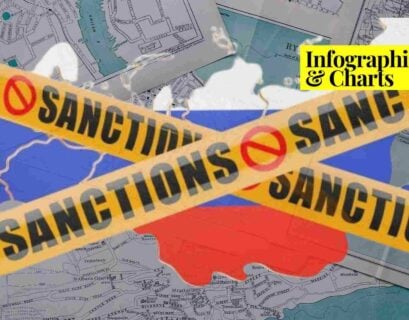Hafsa Ammar is a graduate of the National Defence University, Islamabad. Her areas of expertise are narrative building and propaganda warfare, centered around the Soviet Union and modern-day Russia.
A Happy Little Pill?
A white circular pill with two interlocking crescents engraved upon it, Captagon is a perversion of what was supposed to be medication for narcolepsy and attention deficit disorders. It is currently responsible for running the economy of Syria as it is the biggest exported item and majorly dwarves other more legal and credible avenues of trade.
The chemical name of Captagon is Fenethylline (C18H23N5O2) and it was primarily produced in 1961 by the German pharmaceutical company called ‘Degussa Pharma Gruppe’. It contains amphetamines that are designed to fight fatigue and make the patient more vigilant and active.
In the case of non-patients using it, the intended effects were heightened. People would crossover into euphoria and ecstasy upon taking it. Being hyperactive, they would be able to focus and stay awake for longer hours. It was banned and deemed an illicit drug by the World Health Organization (WHO) in the 1980s.
It has a wide appeal amongst all strata of society. Be it the elites, the impoverished, the young, or the aged all have been seen and known to dabble in this epidemic. This is why currently this drug is mostly found to be peddled amongst unemployed youth, immigrant workers who have to work long shifts, and students trying to study through the night.
The issue that is arising among its users is the crash that follows once the high dies down. Unless cared for by medical professionals, people have reported feeling depressed, nauseated, and delusional once the drug wears off. The side effects are bad on their own but a complementary tragedy is that in many of the Gulf states where this drug has much of the population under its control, the illegal usage of drugs is a crime subject to the death penalty which is why many people don’t get the proper healthcare in fear of authorities arresting them.
Saudi Arabia, on its own, was responsible for almost 200 executions regarding drug-related crimes in 2014. A dangerous factor surrounding drug production is the presence of additives and various cutting agents. The pill at its most concentrated version is pure white while many others can be found in pink, rust, and even yellow colors. The highest cost per pill is visible in Saudi Arabia where it is $14, while it is much cheaper in Lebanon and Syria, dropping down to mere cents.
Connection to Assad’s Government
Captagon is being produced in factories set all over the Arab world, but especially in regime-controlled areas, hinting towards the government of Syria being an active party to the drug trade. Bashar Al-Assad has gone on record to deny his state institution’s involvement in the production and trafficking of the pills and somewhat true to nature attempted to shift the blame on Europe and America, calling out the West for infiltrating the Arab state with its loose liberal ideals and addictions.
Alas, these accusations were for naught as the 4th armoured regiment of Assad’s military, which is being led by his brother Maher Al-Assad has been connected directly to the production and sale of the drug. When it is said that the civil war in Syria is being funded by Captagon, that is not only a hint towards monetary backing but also focuses on how the soldiers in the militia are using these pills to stay awake longer fight harder and wreak more havoc.
When viewed from a broader lens, this drug trade has massive geopolitical agendas attached to it. Syria has fully become a narco-state with its industries churning out more than a million pills every day. Overall, in November of 2022, it was predicted that Captagon was annually bringing around 10 billion dollars – almost a third of which is going directly into the state treasury of Bashar-Al Assad.
Global Response
There has been a global response to this epidemic, with states putting up sanctions and trying to enter into bilateral and multilateral negotiations with Syria. The reintroduction of Syria into the Arab League also serves this motive to a certain extent because nations are hoping they can use ratified agreements and cooperation to tone down the state-sanctioned drug production of Captagon hailing out of Damascus.
The drug trafficking crisis is imminent all over the world. In 2020, Italian authorities seized around fourteen tons of Captagon pills hidden in docked ships. Italian mafias are well-known for their involvement in the drug trade and suspicion was on the Camorra family whose activities are prevalent in organized crime.
The sanctions put into place by the United States and the UK were on four Syrians (two of whom are blood relatives of Bashar Al-Assad) and on two Lebanese drug lords, Noah Zeiter and Hassan Daqqou; the latter’s trading companies were also sanctioned as they are assumed to be part of his smuggling ring. The US even put out a law against the trade: the 2022 US Captagon Act.
It is safe to say that ceasing the illegal production, supply, and trade of Captagon is becoming an evident priority for nations around the world, especially in Europe and the Middle East.
If you want to submit your articles, research papers, and book reviews, please check the Submissions page.
The views and opinions expressed in this article/paper are the author’s own and do not necessarily reflect the editorial position of Paradigm Shift.


















